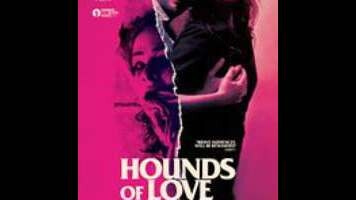Serial-killer drama Hounds Of Love is hard to watch, and even harder to shake

In trying to understand what would make someone commit such a heinous crime as serial murder, you run the risk of minimizing—or, just as bad, fetishizing—those crimes. Hounds Of Love, the debut feature from Australian writer-director Ben Young, avoids these traps by leaving its physical and sexual violence mostly off screen, heard but not seen behind boarded-up windows or locked doors. At the same time, the little that we do see, as well as the emotional violence that permeates the film, is absolutely brutal, so much so that it could potentially be triggering for survivors of sexual assault or domestic abuse. But Young isn’t wallowing in the heroine’s pain and fear for his own sadistic purposes, as is unfortunately often the case with “horror” that revolves around the rape and murder of women. Instead, Hounds Of Love is more along the lines of a film like Henry: Portrait Of A Serial Killer, an uncompromisingly dark character drama whose content is disturbing enough to classify it as a horror film.
Although it’s never explicitly stated, the story parallels that of real-life serial killers David and Catherine Birnie, a couple who murdered four women in Western Australia in the 1980s. In Young’s retelling, the main characters form a chillingly perverse love triangle: John White (Stephen Curry), a man small in both stature and status who takes out his toxic anger on women; his emotionally disturbed wife, Evelyn (Emma Booth); and Vicki Maloney (Ashleigh Cummings), a rebellious, resourceful teenager who realizes that, if she’s going to survive her captivity in the Whites’ lower-middle-class tract house, she’s going to have to play the couple against itself. Through them, Young explores the cycles of misogyny and abuse that compel women like Evelyn to participate in unforgivable acts, and allow the system to fail women like Vicki.
The film opens in suburban Perth in the mid-’80s, as we watch John and Evelyn picking up a young woman on her way home from net ball practice, offering her friendly faces and a ride home in the heat. She’ll never be seen alive again. John and Evelyn have worked out a seemingly successful and extremely sick domestic routine, where they kidnap women using Evelyn as bait (a couple is more trustworthy than a single man, after all), chain them up in their spare bedroom, torture them for a couple of days, and kill them. We witness the completion of this cycle as John drives out to the wilderness to bury the body while Evelyn washes blood out of the sheets, all before the film’s title card appears more than 10 minutes in.
Hounds Of Love patiently develops its characters, spending enough time with Vicki, her boyfriend, and her divorced parents for maximum payoff later in the film. Then Vicki sneaks out one night to go to a party; on her way there, she’s approached by John and Evelyn on the hunt for a new victim. Vicki is street smart enough to know not to jump into a stranger’s car, but through a series of small concessions she ends up first standing in their driveway, then coming inside, then accepting a drink, then fighting for her life as John and Evelyn chain her to the bed, “Nights In White Satin” blaring in the background.
At this point, Evelyn seems to be as much of a monster as her husband, and both of them are clearly aroused by Vicki’s struggle. But over the course of the film, Emma Booth’s powerful performance reveals Evelyn to be an emotionally shattered woman who John has been grooming since she was 13 years old. A classic narcissistic abuser, John uses the absence of her children (who live with their father, a man Evelyn was with between stints with John) and the presence of their captives (whose youth and beauty stoke her insecurities) to manipulate Evelyn into believing that rape and murder will bring them closer together as a couple. Even when she’s lashing out in anger, Booth displays a brokenness that makes her character, if not sympathetic, then profoundly tragic.
Meanwhile, Vicki’s mother, Maggie (Susie Porter), is engaged in a futile quest to get local police to investigate her daughter’s case. Even with bulletin boards overflowing with pictures of missing girls, local police insist that Vicki has run away and that Maggie is just being hysterical. Making things worse is Vicki’s dad, who claims that, had Maggie not abandoned the family to be an “independent woman,” none of this would have happened. It’s Maggie’s dogged investigation that leads to an unbearably intense climactic scene, as the tensions that have been building throughout the film explode.
For a first-time director, Young displays remarkable control over Hounds Of Love. He even gets cocky sometimes, with showy shots like a drone swooping over a dry grove of pine trees or a long slow-motion tracking shot through John and Evelyn’s neighborhood. Thankfully, these visual flourishes are deployed sparely enough to not be too intrusive, as are the pop songs from the Moody Blues, Cat Stevens, and Joy Division peppered throughout.
Mostly, though, Young’s style is fastidiously realistic, with little touches like the planes constantly going by overhead and Evelyn’s high-waisted jeans giving a specific sense of time and place. Some details, like the box of stuffed animals that lets viewers know that John and Evelyn keep their victims in the room that once belonged to Evelyn’s children, are downright devastating. The script is similarly carefully constructed, with no subtle visual cue or offhand comment left unexplored. Hounds Of Love is a remarkable achievement in that it does exactly what it sets out to do, and what it sets out to do is traumatize the hell out of you. You just might not want to watch it twice.